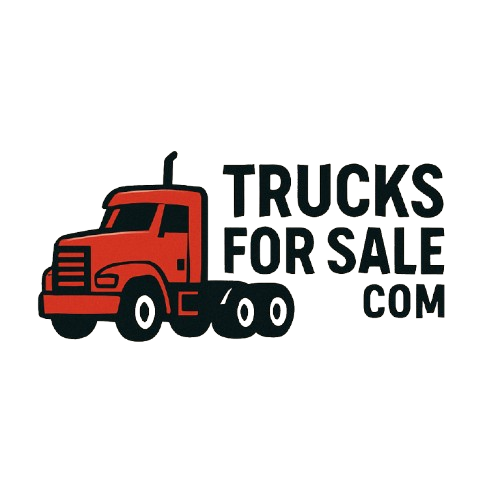
Cargo Vans and Box Trucks for Sale: Your Comprehensive Guide to Finding the Perfect Commercial Vehicle
In the bustling world of commerce, efficient transportation is not just a convenience; it’s a critical component of success. For countless businesses, from budding startups to established enterprises, cargo vans and box trucks serve as the backbone of their operations. These versatile vehicles are the workhorses that deliver goods, transport tools, facilitate moves, and keep the wheels of industry turning. If you’re looking to expand your fleet, start a new venture, or upgrade your current capabilities, understanding the market for cargo vans and box trucks for sale is your first essential step. This guide will delve deep into everything you need to know, helping you navigate the options and make an informed decision that drives your business forward.
Why Invest in a Cargo Van or Box Truck?
Investing in a dedicated commercial vehicle like a cargo van or a box truck offers a multitude of benefits that directly impact operational efficiency and profitability.
- Versatility: These vehicles can be configured for a vast array of purposes, including package delivery, plumbing, electrical work, HVAC services, catering, mobile workshops, moving services, and much more.
- Increased Capacity: Unlike standard passenger vehicles, cargo vans and box trucks are designed to maximize cargo space and payload, allowing you to transport more goods or equipment in fewer trips.
- Operational Efficiency: Owning your fleet means greater control over scheduling, routes, and delivery times, reducing reliance on third-party logistics and often leading to significant cost savings in the long run.
- Professional Image & Branding: A clean, well-maintained commercial vehicle with your company’s branding acts as a mobile billboard, enhancing your professional image and increasing brand visibility wherever it goes.
- Customization Potential: Both vans and trucks offer extensive opportunities for customization, from interior shelving and racking systems to specialized refrigeration units or liftgates, tailoring the vehicle precisely to your specific business needs.
Whether you’re a small business owner, an independent contractor, or managing a large fleet, a cargo van or box truck is a strategic asset that can significantly boost productivity and bottom-line results.
Understanding Your Needs: Cargo Van vs. Box Truck
The first critical decision in your search is determining whether a cargo van or a box truck best suits your operational requirements. While both are designed for cargo transport, they serve distinct purposes.
Cargo Vans
Cargo vans are typically unibody vehicles, meaning the body and chassis are integrated, similar to a large SUV or minivan. They are fully enclosed, offering secure and weather-protected cargo space.
- Description: Resemble oversized passenger vans but with no rear windows and an open cargo area behind the front seats. Examples include Ford Transit, Mercedes-Benz Sprinter, Ram ProMaster, and Nissan NV.
- Pros:
- Maneuverability: Generally smaller and easier to navigate through urban environments, tight streets, and parking lots.
- Fuel Efficiency: Tends to be more fuel-efficient than box trucks, especially compact models.
- Lower Initial Cost: Often more affordable to purchase new or used.
- Driving Experience: Drives more like a large car, requiring less specialized driving skill.
- Stealth: Less obvious as a commercial vehicle, which can be an advantage in residential areas or for certain types of deliveries.
- Cons:
- Limited Cargo Space: While spacious, they have less cubic footage and lower payload capacity compared to box trucks.
- Loading/Unloading: Access is typically through side and rear doors, which can be less convenient for palletized goods without a forklift.
- Ideal For: Urban delivery services, electricians, plumbers, HVAC technicians, florists, mobile detailers, and small package delivery.
Box Trucks
Box trucks, also known as straight trucks or cube vans, consist of a separate cabin and a distinct, enclosed cargo box mounted on a truck chassis.
- Description: Features a rectangular, often tall, cargo area that is separate from the driver’s cab. Examples include Isuzu N-Series, Hino 195, Ford F-Series (with box), and GMC Savana Cutaway (with box).
- Pros:
- Maximum Cargo Space: Offers significantly more cubic footage and higher payload capacity, ideal for large, bulky items or multiple pallets.
- Easier Loading/Unloading: Many box trucks come equipped with liftgates or ramps, simplifying the loading and unloading of heavy or unwieldy items.
- Headroom: The tall, rectangular box allows for standing room, making it easier to organize and access items inside.
- Versatility in Box Design: The cargo box can be highly customized with features like refrigeration, multiple access points, specialized shelving, or even converted into mobile workshops.
- Cons:
- Lower Fuel Efficiency: Generally consumes more fuel due to larger size and heavier weight.
- Maneuverability Challenges: Harder to drive, park, and navigate in tight spaces, especially longer models.
- Higher Initial Cost: Typically more expensive to purchase than cargo vans.
- Maintenance: Can have higher maintenance costs due to heavier-duty components.
- Ideal For: Moving companies, furniture delivery, large appliance delivery, freight transport, construction companies, caterers, and businesses requiring extensive mobile storage.
Key Considerations Before Buying
Before you commit to a purchase, several factors need careful consideration to ensure you select the right vehicle for your long-term needs.
-
New vs. Used:
- New: Offers the latest technology, full manufacturer warranty, customization options, and often better financing rates. However, the initial cost is significantly higher, and depreciation is steepest in the first few years.
- Used: Presents a more affordable entry point, allows you to avoid the steepest depreciation, and offers a wider selection of makes, models, and configurations. The trade-off can be higher maintenance costs, limited warranty (if any), and potential for hidden issues. For used vehicles, always request maintenance records and consider a pre-purchase inspection by a trusted mechanic.
-
Budget: Beyond the sticker price, factor in financing costs, insurance (commercial insurance can be expensive), fuel consumption, maintenance, and potential customization expenses. Create a realistic budget that covers the total cost of ownership.
-
Capacity and Payload:
- Gross Vehicle Weight Rating (GVWR): This is the maximum operating weight of the vehicle as specified by the manufacturer, including the vehicle’s own weight, fuel, passengers, and cargo. Ensure the GVWR is adequate for your heaviest loads.
- Payload Capacity: This is the maximum weight of cargo and passengers the vehicle can safely carry. Overloading a vehicle is dangerous, illegal, and can lead to premature wear and tear.
- Cargo Volume (Cubic Feet): Consider the physical size and volume of the items you’ll be transporting.
-
Engine and Fuel Type:
- Gasoline: Generally less expensive upfront, quieter, and easier to refuel. Good for lighter loads and shorter, stop-and-go routes.
- Diesel: More expensive but offers superior torque, better fuel economy (especially under load), and longer engine life. Ideal for heavy loads, long distances, and consistent commercial use.
-
Condition (for Used Vehicles):
- Mileage: High mileage isn’t always a deal-breaker if the vehicle has been well-maintained, but it often indicates more wear.
- Maintenance Records: A full service history is invaluable.
- Rust: Check for rust, especially on the chassis, frame, and undercarriage, which can indicate structural issues.
- Tires: Inspect tire wear; uneven wear can signal alignment or suspension problems.
- Engine & Transmission: Listen for unusual noises, check for leaks, and ensure smooth shifting during a test drive. A professional inspection is highly recommended.
-
Features and Upgrades:
- Interior Upfits: Shelving, drawers, racks, workbenches for tools and equipment.
- Access: Sliding side doors, swing-out rear doors, liftgates (hydraulic platforms), ramps.
- Climate Control: Refrigeration or heating units for temperature-sensitive cargo.
- Security: Advanced locking systems, alarm systems.
- Towing Package: If you plan to tow trailers.
-
Legal and Regulatory Requirements:
- CDL (Commercial Driver’s License): Most cargo vans do not require a CDL. However, some larger box trucks (especially those with a GVWR over 26,001 lbs or carrying hazardous materials) may require a CDL. Always verify local and federal regulations.
- DOT Regulations: Depending on your vehicle’s weight and use, you may be subject to Department of Transportation (DOT) regulations regarding inspections, driver hours, and record-keeping.
- Insurance: Commercial vehicle insurance is mandatory and typically more expensive than personal auto insurance.
Where to Find Cargo Vans and Box Trucks for Sale
The market for commercial vehicles is robust, offering numerous avenues to find your next asset:
- Commercial Dealerships: Authorized dealers for brands like Ford, Ram, Mercedes-Benz, Freightliner, Isuzu, and Hino specialize in new and certified used commercial vehicles. They offer financing, warranties, and after-sales service.
- Online Marketplaces:
- Dedicated Commercial Vehicle Sites: Websites like TruckPaper.com, CommercialTruckTrader.com, and WorkTrucks.com list thousands of new and used commercial vehicles from dealers and private sellers.
- General Classifieds: Craigslist, Facebook Marketplace, and eBay Motors can be good for finding private sellers, often at lower prices, but require more caution and due diligence.
- Fleet Sales and Auctions: Large corporations, rental companies (e.g., Ryder, Penske, U-Haul), and government agencies frequently sell off parts of their fleets through direct sales or auctions. These vehicles often have high mileage but come with detailed maintenance records.
- Private Sellers: Individuals or small businesses upgrading their vehicles may sell directly. This can be a good source for a deal but emphasizes the need for thorough inspection and due diligence.
The Buying Process: Tips for a Smooth Transaction
Once you’ve identified potential vehicles, follow these steps to ensure a confident purchase:
- Research Extensively: Compare models, features, and prices across different sellers and platforms. Read reviews and common issues for the specific make and model you’re considering.
- Set a Clear Budget: Stick to your budget, including the purchase price, taxes, fees, and immediate necessary repairs or upgrades.
- Inspect Thoroughly: For used vehicles, this is non-negotiable. Visually inspect the exterior (rust, dents, paint), interior (wear, damage), engine bay (leaks, corrosion), and tires. Get a professional mechanic to perform a pre-purchase inspection.
- Test Drive: Take the vehicle for an extended test drive, including highway and city driving. Pay attention to steering, braking, acceleration, transmission shifts, and any unusual noises or vibrations. Test all lights, wipers, HVAC, and power windows/locks.
- Negotiate Price: Don’t be afraid to negotiate, especially on used vehicles. Research comparable sales to understand fair market value.
- Understand Financing Options: Explore loans from banks, credit unions, and dealership financing. Compare interest rates and terms.
- Vehicle History Report: For used vehicles, obtain a vehicle history report (e.g., Carfax for vans, specific services for trucks) to check for accidents, salvage titles, odometer fraud, and service history.
- Review All Paperwork: Before signing, carefully read the sales agreement, warranty information (if applicable), and any other documents. Ensure all agreed-upon terms are in writing.
Price Table: Cargo Vans and Box Trucks for Sale (Illustrative Ranges)
| Vehicle Type | Condition | Price Range (USD) | Key Features/Notes |
|---|---|---|---|
| Cargo Vans | |||
| Compact Cargo Van | New | $25,000 – $35,000 | Ford Transit Connect, Nissan NV200. Good for small loads, urban use. |
| Compact Cargo Van | Used (3-5 yrs) | $12,000 – $22,000 | Value option for light-duty, local deliveries. |
| Full-Size Cargo Van | New | $38,000 – $65,000 | Ford Transit, Ram ProMaster, Mercedes Sprinter. High roof, various wheelbase options. |
| Full-Size Cargo Van | Used (3-5 yrs) | $20,000 – $40,000 | Popular choice, often with existing upfits. Condition varies greatly by mileage. |
| Full-Size Cargo Van | Used (5-10+ yrs) | $10,000 – $25,000 | Budget-friendly, but expect higher mileage and potential maintenance. |
| Box Trucks | |||
| Light-Duty Box Truck (10-16 ft) | New | $50,000 – $80,000 | Isuzu N-Series, Hino 155. Ideal for moving, furniture, smaller freight. |
| Light-Duty Box Truck (10-16 ft) | Used (3-7 yrs) | $25,000 – $50,000 | Good value, often with liftgates. Check for commercial fleet usage wear. |
| Medium-Duty Box Truck (18-26 ft) | New | $70,000 – $120,000+ | Freightliner M2, Hino 268. For heavier, bulkier loads. May require CDL for larger GVWR. |
| Medium-Duty Box Truck (18-26 ft) | Used (3-7 yrs) | $40,000 – $75,000 | Excellent for growing businesses. Inspect engine/transmission thoroughly. |
| Medium-Duty Box Truck (7-10+ yrs) | Used (7-10+ yrs) | $20,000 – $45,000 | Can be a steal, but factor in potential for significant repairs. |
Note: Prices are highly variable based on make, model, year, mileage, condition, specific features (e.g., liftgate, refrigeration), and market demand. These ranges are illustrative.
Frequently Asked Questions (FAQ)
Q1: What is the average lifespan of a cargo van or box truck?
A1: With proper maintenance, cargo vans can last 200,000 to 300,000 miles or more. Box trucks, especially diesel models, are often built for heavier duty and can exceed 400,000 to 500,000 miles.
Q2: Do I need a CDL (Commercial Driver’s License) to drive a cargo van or box truck?
A2: Most cargo vans do not require a CDL. For box trucks, a CDL is generally required if the vehicle has a Gross Vehicle Weight Rating (GVWR) of 26,001 pounds or more, or if it transports hazardous materials or 16 or more passengers (including the driver). Always check your specific state’s regulations.
Q3: What is GVWR and why is it important?
A3: GVWR stands for Gross Vehicle Weight Rating. It’s the maximum operating weight of the vehicle as specified by the manufacturer, including the vehicle’s own weight, fuel, passengers, and cargo. It’s crucial because it determines the maximum load you can safely carry and can impact licensing requirements.
Q4: How much does commercial vehicle insurance cost?
A4: Commercial insurance varies widely based on vehicle type, usage, cargo type, driver’s record, business location, and coverage limits. It’s typically significantly more expensive than personal auto insurance, ranging from a few thousand to over ten thousand dollars annually. Get multiple quotes.
Q5: Is it better to lease or buy a cargo van or box truck?
A5:
- Buying: Offers ownership, equity build-up, and no mileage limits. Best if you plan to keep the vehicle long-term and value customization.
- Leasing: Provides lower monthly payments, allows for frequent upgrades to newer models, and often includes maintenance. Best if you prefer lower upfront costs, don’t want the hassle of selling, or have fluctuating vehicle needs.
Q6: What kind of maintenance should I expect for a commercial vehicle?
A6: Regular maintenance is key to longevity. This includes routine oil changes, tire rotations, brake inspections, fluid checks, filter replacements (air, fuel, cabin), and scheduled preventative maintenance based on manufacturer recommendations. Heavier usage will require more frequent servicing.
Conclusion
The decision to purchase a cargo van or box truck is a significant one for any business. These vehicles are more than just transportation; they are mobile extensions of your operations, enabling growth, improving efficiency, and projecting a professional image. By thoroughly understanding your needs, weighing the pros and cons of different vehicle types, considering all financial and operational factors, and diligently navigating the buying process, you can secure a vehicle that not only meets your current demands but also supports your future aspirations. Invest wisely, and your new cargo van or box truck will be a workhorse that pays dividends for years to come.

 Trucks for Sale Find the best deals on used trucks for sale across the USA. Browse pickups, semi trucks, dump trucks and more – updated daily
Trucks for Sale Find the best deals on used trucks for sale across the USA. Browse pickups, semi trucks, dump trucks and more – updated daily